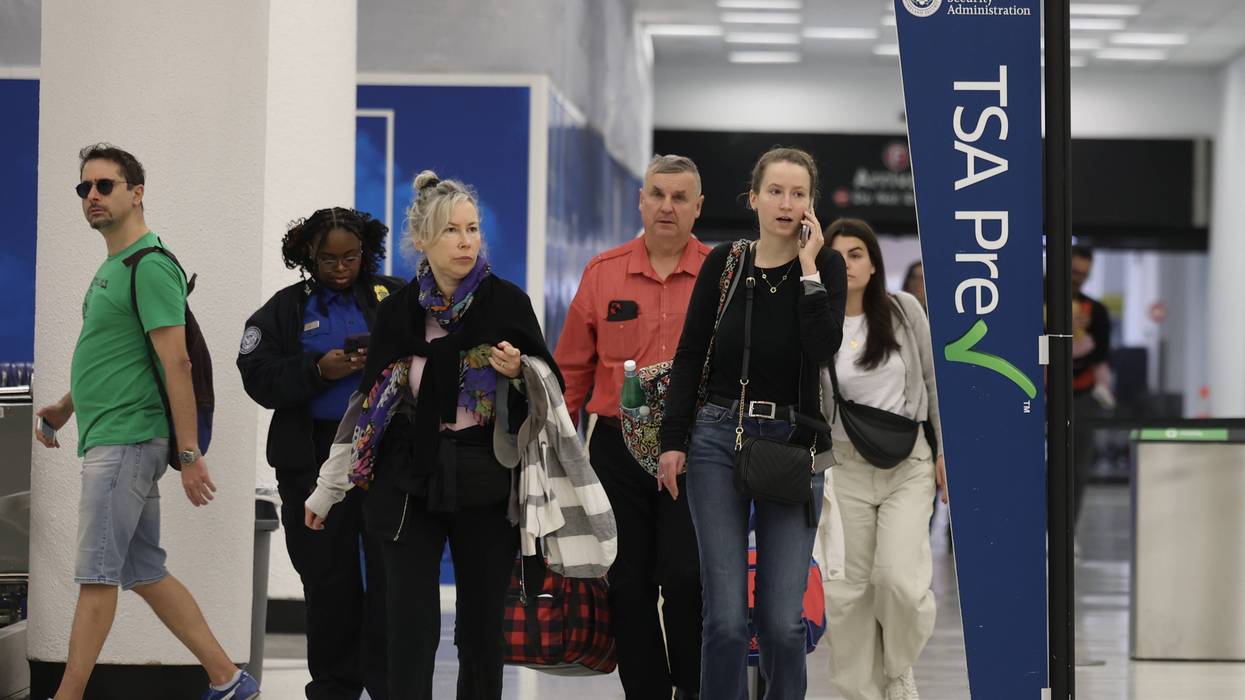- Peru and Chile maintain free market principles and diversification of trading partners
- Brazil, Chile, Colombia and the U.S. implement huge stimulus packages
- Argentina, Paraguay, and Ecuador attempt to protect their economies by imposing new tariffs
- The G-20 summit this April could offer global solution to the crisis
As the G-20 meeting is about to begin in London, the outlook for Latin American growth in 2009 is grim, as the tempo of foreign direct investment ( FDI) and loans stand-by credits and development funds plummet, the demand for commodities diminish, and foreign remittances plunge.The World Bank vice president for Latin America and the Caribbean, Pamela Cox, is forecasting 0.3 percent growth for Latin America this year, down from the originally 2.7 percent predicted in January. Cox anticipates that countries most closely linked with the U.S. economy will be hit the hardest. Thus, NAFTA, CAFTA and the U.S.-Caribbean Basin Trade Partnership Act (CBTPA) may prove particularly harmful for Mexico, Central America, and the Caribbean in the foreseeable future.
On the other hand, South American nations like Peru and Brazil that have diversified their bilateral trade partners over the last decade, may be less impacted by the global recession. MERCOSUR, UNASUR, ALBA and other South American regional trade agreements could also help to soften the blow on the continent. Nonetheless, much of South America is now experiencing a recession, and the debate on how to most effectively respond to it varies widely among economists.
Those Who Diversify: Chile
At a G-7 meeting in early February, finance ministers maintained an anti-tariff rhetoric and pledged to remain "committed to avoiding protectionist measures." Accordingly, Timothy Geithner, U.S. Treasury Secretary, stated, "all countries need to sustain a commitment to open trade and unfettered investment policies which are essential to economic growth." While some left-leaning governments in South America are erecting trade barriers, Peru and Chile are robustly pursuing their free trade model, with a free trade agreement (FTA) between the two nations having gone into effect on March 1, 2009. Moreover, in conjunction with this agreement, the two countries continue to diversify their trading partnerships. Chile has signed comprehensive FTAs with the US, Canada, the EU, South Korea, Japan, Central America and Mexico.
Peru
Meanwhile, its trade agreement with Australia went into effect on March 6, 2009.
According to Financial Times, Peru's President Alan Garcia signed FTAs with Canada and Singapore in 2008 and expects the pacts to come into effect this month. Peru's trade deal with China should also take effect within the next few months, and agreements with South Korea, Central America, and Japan are currently under negotiation. Their advocates insist that Chile and Peru's economies have benefited enormously from free trade, but a number of area nations and various leftist analysts are moving away from an unalloyed neo-liberal-oriented enthusiasm for this type of approach.
Washington's Approach
The U.S. is also somewhat shifting away from the neo-liberal free trade model. "Our consensus to advance international trade is frayed," explained senator Max Baucus (D-Mont.) at the nomination hearing of U.S. Trade Representative nominee Ron Kirk on March 9, 2009. "Our faith in the international trading system is badly shaken." The Obama administration has vowed to shift U.S. trade policy away from a strategy of signing new agreements to impose tougher labor and environmental standards and position them in the core of the FTA prior to the final passage of trade deals. The Office of the USTR also has issued a statement claiming that trade policy will contain a new element of "social accountability," intending to make the trade pact part of the solution "for addressing international environmental challenges."
In response to the current world economic crisis, however, drawn out trade agreements do not offer a timely or convincing solution to a very real problem. In order to allow for a more immediate impact on the economy, the U.S. along with a number of South American nations have implemented Keynesian economic policies that protect domestic markets and stimulate demand. Proponents of this economic model assert that the solution to a recession is to stimulate a state's economy through a combination of increased infrastructure spending by the government and interest rate reductions. This is exactly what President Barack Obama is hoping to do with the $787 billion economic stimulus package he signed into law on February 17, 2009. Within the U.S., the stimulus package has received criticism for not addressing the finance and mortgage situation, not being big enough and quick enough, as well as neglecting to provide enough stimuli for the private sector, and to protect the public from senior personnel gouging taxpayer funds by means of ill-earned bonuses by ethically challenged financial officers.
Internationally, the biggest criticism regarding trade policy has been the "Buy American" provision. Although Obama amended this language so that Washington would not violate trade agreements and international trade laws, the plan still favors U.S. steel, iron, and manufactured goods for infrastructural projects. While the U.S. will not be found disrupting its trade relations with Canada and Mexico, U.S. steel and iron will be able to maintain their preferences over the largest emerging economies, such as Brazil, India, and China. Some economists fear that if the U.S. is able to close its market from these nations, the affected developing countries may be forced to decide to close their own borders, with their 2 billion or so consumers, to American exports, and thus ignite a trade war. World Trade Organization (WTO) director, General Pascal Lamy remains cautious over the provision. After Obama watered down the language, Lamy said, "We all know the devil isn't in the details, it's in the implementation."
Those Who Stimulate: Brazil
Brazil, Colombia, and Chile are also implementing Keynesian national stimulus packages, though on a much smaller scale when compared to that of the U.S. Brasilia's $281 billion deal is focused primarily on supporting the energy and transportation sectors of South America's largest economy, according to Prabir De of Indian Express Finance. In December 2008, Brazil also announced 2009 tax cuts of 8.4 billion reais (US $3.6 billion), directed primarily at the obligations borne consumers. According to Brazzil Mag, the measure also included a tax reduction provided on the Tax on Industrialized products for the Brazilian auto industry until March 31, 2009. The carmakers agreed to transfer the tax cuts to reduce the prices charged to their customers, making prices for their vehicles considerably cheaper.
Colombia
The Brazilians are not the only South Americans attempting to jump start their economy. Colombia's plan represents the largest annual infrastructure spending in its history. The 55 trillion peso (US$22 billion) stimulus plan includes over 100 electricity, transportation, oil, and sanitation projects, according to Latin Finance. Colombia's economy is predicted to grow less than 2 percent this year, and the stimulus is expected to allow it to weather the storm, according to Carolina Rentaria, head of Colombia's National Planning Department.
Chile
Chile will also break its record for economic stimulus spending this year, as President Michelle Bachelet announced a $4 billion scenario to curtail the effects of the global recession on January 6, 2009. The primary aim of the stimulus is to create the conditions for economic growth as well as to generate 100,000 new jobs. As Davor Luksic of The Americas Society reports, the stimulus focuses on tax rebates and subsidies, such as $1 billion for Codelco, the country's giant state-owned copper producer. The January plan followed a $1.15 billion spending bill, which was passed in November 2008, and was intended to stimulate lending to small businesses and middle-income households. Santiago is also mulling over temporarily cutting the 19 percent value-added tax (VAT) and adding a one-time payment to low-income families as a third economic stimulus, according to a Reuters report.
Although stimulus packages do not include explicit protectionist mandates, such as tariffs and anti-dumping measures, several developing nations have argued that fiscal stimulants and bailouts (especially to large bank and auto bailouts in the U.S. and Europe) may be having an adverse effect on international trade. At a WTO Trade Policy Review Body meeting, developing countries were concerned about large subsidies being made to individual industries, such as U.S. steel fabricators. At the same meeting, Brazilian Ambassador Roberto Azevedo told journalists that protectionism includes more than just controlling imports and raising tariffs. It also includes subsidies and large stimulus packages, which are typically not available to developing nations with limited resources. Azevedo argued that industrialized nations "are increasing the capacity of their industry to compete in a way that developing countries cannot." Since developing nations do not have the funds to implement such large scale supportive measures, their only alternative is raising tariffs.
Those Who Tariff: Argentina
As part of their economic defense strategy, Argentina, Ecuador, and Paraguay have all raised tariffs to protect their domestic markets. In November, Argentina and Brazil lobbied to raise the common tariff of MERCOSUR, the South American regional trade bloc, but Paraguay and Uruguay did not support the overtly protectionist measure. In response, Argentina unilaterally imposed tariffs on a variety of goods including shoes, appliances, farm machinery, processed food, steel, iron and textiles. Buenos Aires in turn was criticized by Brazil, China and Paraguay for its new system of licensing and minimum pricing that it has applied to over 1,000 imports in recent months. The Bridges Weekly Trade News Digest observed that Brazilian manufacturers consider that Argentina's new policies "unfairly discriminate against their products... by delaying shipments for up to 60 days and effectively excluding imports that fail to meet the price requirements." Yang Shidi, economic and commercial counselor of the Chinese Embassy in Argentina also condemned the import restrictions as "discriminatory," in an interview published in La Nacion. Yang went on to assert that the new policies have hurt Chinese producers and are inconsistent with a 2004 memorandum of understanding (MOU) between Argentina and China, which acknowledges China's market economy status.
As a result of Argentina's restrictions and its trade deficit with Brazil, the Paraguayan government announced on March 1, that it will apply certain tariffs to imports from Argentina and Brazil in order to protect its local industry. Paraguay's Finance Minister Dionisio Borda argued that Asuncion's treatment of Argentinean and Brazilian imports would be similar to their respective treatment of Paraguayan imports. Borda stated, "We, too, are going to apply the same measures they have adopted." He assured the interested parties that the measures would "be temporary" and serve as part of the economic recovery plan. Paraguay is also implementing its own "Buy National" campaign similar to the U.S. "Buy American" provision, which will give local Paraguayan goods and services a 70 percent preference, according to Borda.
Ecuador
President Rafael Correa of Ecuador is essentially forcing citizens to "Buy Ecuadoran" products with his newly imposed import restrictions. According to a WTO press release, Quito raised tariffs between 5 and 20 percent on 940 products, including perfume, liquor, shoes, shampoo, grapes, butter, turkey, caramels, cell phones, eyeglasses, sailboats, building materials and transport equipment. As prices of imported goods drastically increased, some argue that buying domestic is now the only practical choice for most Ecuadoran consumers. Correa, however, predicts that the tariffs will have only a minor impact on citizens, because "the poor don't consume perfumes, liquor and chocolates."
Ecuador's new tariffs have been criticized as one of the world's most protectionist responses to the global economic crisis. Gary Hufbauer, of the conservative Peterson Institute for International Economics, argues that no other country has harsher restrictions on imports. Correa said drastic measures were necessary to prevent Ecuador's economy from crumbling, as petroleum prices declined and remittances and earnings on foreign investment plunged. It should be noted that Ecuador is extremely vulnerable in the current situation because it adopted the U.S. dollar as its official currency in 2000 after the country was beset by a withering banking crisis. This prevents Quito from printing its own money. Ultimately, this could prove to be problematic if Ecuador's trade deficit widens because its economy could collapse due to a drainage of U.S. dollars. Correa hopes that the restrictions will keep $1.46 billion from exiting Ecuador's $50 billion economy, according to Jeanneth Valdivieso and Frank Bajak of the Associated Press. Some economists are also calling for the creation of a national currency to replace or supplement the dollar, in order for Ecuador to maintain a more sound monetary policy.
Paraguay
Although tariffs are seen as short term solutions, they can have long term consequences. For instance, some economists argue that tariffs and price controls have the potential to trigger global "trade wars," as witnessed in Paraguay's response to Argentina's imposed tariffs. They also agree that protectionist measures, such as Smoot-Hawley Tariff Act, prolonged the Great Depression longer than may have been necessary. Thus, newly imposed tariffs should only be counted on to provide temporary relief (much like an economic stimulus), and they should be re-evaluated as the beginning signs of a recovery appear.
A Global Solution to a Global Problem
As the economic crisis continues to globalize, South American nations are pursuing various trade deals, implementing economic stimulus packages, and imposing new tariffs in response. All of these individual national efforts seek to soften the blow delivered by the downturn, but it is unlikely that they alone will solve the problem. Latin American stocks have plummeted and the International Labor Organization has issued a warning that 2.4 million Latin Americans shortly could join the ranks of the unemployed this year as a result of the incessant crisis. Nevertheless, the catastrophe extends far beyond Latin America and the entire Western Hemisphere, and thus there is dire need for global collective action. The G-20 summit in London that begins in a few days, offers a good deal of potential to develop a concerted response. At this point, the only thing the world's economies seem to agree on is that the financial regulatory system needs to be reformed, but exactly to what extent, continues to be a serious concern. Developing nations want greater governance over the operation of the international financial institutions, such as the World Bank and the International Monetary Fund (IMF). They also agree that the IMF needs to be rendered more flexible in terms of the conditionalities it imposes on countries receiving financial aid.
Developing nations also fear that they will be "crowded out" by developed nations in terms of access to loans and investment capital. Latin American finance ministers have called for a recapitalization of the Inter-American Development Bank (IDB), currently the largest lender in Latin America for major development projects. The World Bank is proposing a Vulnerability Fund that would similarly focus on infrastructure projects and maintaining adequate financing of schools, health care, and loans for small businesses for low income elements of the population.
The U.S. is also calling for greater financial regulation, while simultaneously calling on the EU to engage in greater government spending and in economic stimulus programs. The EU, much like Latin America, feels as though it is being forced to clean up a mess that originated mainly in the U.S. There is a fear that the G-20 summit will be spoiled due to delegates bringing with them contrasting objectives and with only 24 hours to rush through the chaotic agenda. One can only hope that the world powers listen to the worthy voices of developing nations and work together to overcome the global crisis. If the former don't, the real problems will really begin.
This analysis was prepared by COHA Research Associate Will Petrik




